With career options shrinking to quite a few in Kashmir, scores of students are attempting to achieve targets their parents failed to hit for one or the other reason. This has led to rise of a generation that lacks a passion in its profession or is gradually dipping into depression for living choreographed lives, reports Syed Shadab Ali Gillani
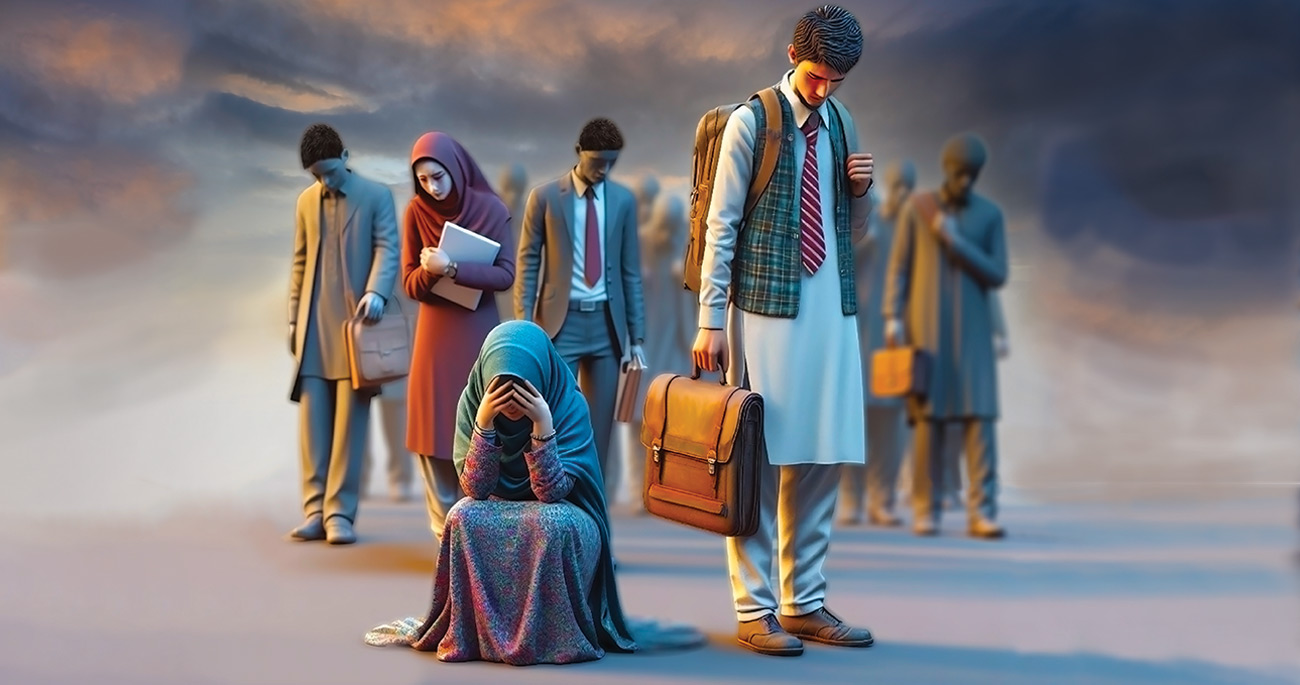
Policymakers say the life expectancy has improved significantly. The routine of life, however, is landed in such a fast and too-competitive mode that now parents dream of their children achieving what they could not. This has added a new segment of underdogs in which the new generation attempts to obediently live the lives their parents choreograph. They live but do not enjoy. They earn but remain dissatisfied. In the long run, it impacts their persona.
Parental expectation is a new norm that is being enforced in Kashmir. Deep-seated societal norms compel the younger generation to abandon personal passions, steering them toward conventional fields like medicine or engineering. This generates mental and emotional distress among ambitious youth in the region. It has started restricting professional choices and prioritising societal approval and prestige over individual talents.
The result: a generation is grappling with a moral dilemma between career options and familial expectations. This pervasive phenomenon not only hinders the aspirations of emerging artists but also dims the cultural vibrancy and creative potential of the region. The arts, unfortunately, become casualties of a system that elevates traditional vocations as the epitome of success.
The NEET Season
Zahira is 18 and slated to appear for her twelfth this spring. For the last two years, she is fighting frequent headaches. However, it has not impacted her studies. She prepares for the examination with self-study, group reading and online. She dislikes some of her science subjects but somehow manages to pick whatever she requires.
“I do not like the sciences but I am studying it because my mother wants to see me in medical school,” she said. “I know I am not incompetent. I will give it a try. If it could not manage NEET, I will give it up.”
However, reaching a level where she is working to live the dream of her mother is making a huge impact on her health. In case of failure, interestingly, she asserted she lacks a plan B. That could add to her worries.
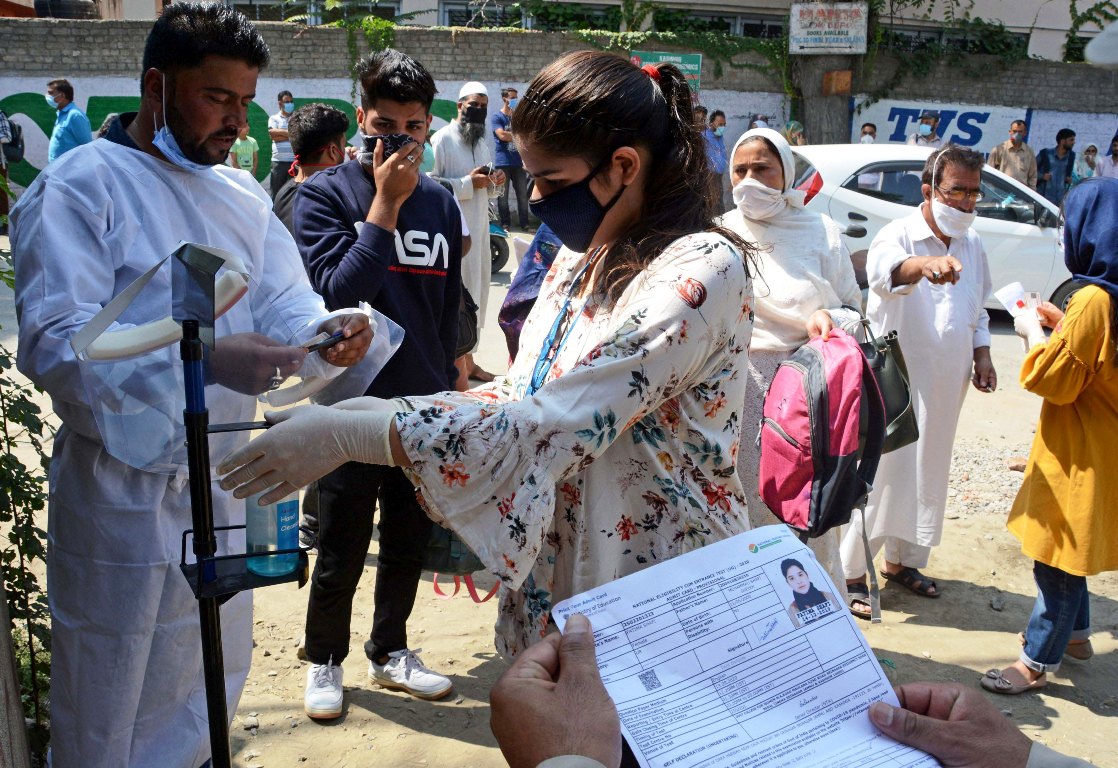
The unfolding saga of the 2023 MBBS seat scramble lays bare dreams and hurdles. The NEET UG 2023 Jammu and Kashmir seat matrix reveals 1347 coveted spots dispersed among 12 medical institutions. Of these, 1047 seats reside in government establishments, while an additional 100 are nestled in the private precincts of regional medical schools. According to data from the National Testing Agency, a total of 34,615 students vied for these 1347 seats.
As competition intensifies, pursuing medical college admission transforms into a formidable journey. Faced with the daunting task of securing a spot within the country, some individuals are extending their gaze beyond borders. Amidst this narrative, Inayat Ahmed steps into the spotlight, offering a unique perspective that paints a portrait of resilience and determination.
Propelled by unyielding dedication, Inayat’s son invested heart and soul into NEET preparation. He could not make it. “My son dedicated himself to preparing for NEET and put in considerable effort for the examination, but unfortunately, he was not selected,” laments Inayat. The initial disappointment prompted consideration of the conventional path of pursuing medical education within India. However, the stark reality of exorbitant costs surpassed their budgetary constraints.
Undeterred by financial limitations and determined to carve a path for his son’s medical aspirations, Inayat and his family embarked on a journey beyond the familiar terrains of India. The pursuit of more affordable alternatives led them to explore academic landscapes in countries such as Iran and Bangladesh, where the pursuit of medical knowledge comes with a more manageable financial burden.
In the face of adversity, Inayat’s story mirrors the evolving landscape of medical education choices. It is a tale not just of challenges but also of resilience, as families navigate uncharted waters to ensure the flame of medical aspirations continues to burn brightly. Beyond the confines of NEET UG 2023 and the state’s seat matrix, a broader narrative unfolds—one of determination, exploration, and the unwavering pursuit of the healing arts.
Obligatory Compulsions
Contemplating the narratives shared by students navigating studies far from home, Sofiya, a 23-year-old from South Kashmir, currently pursues an MBBS programme in Delhi—an academic path not aligned with her true passions.
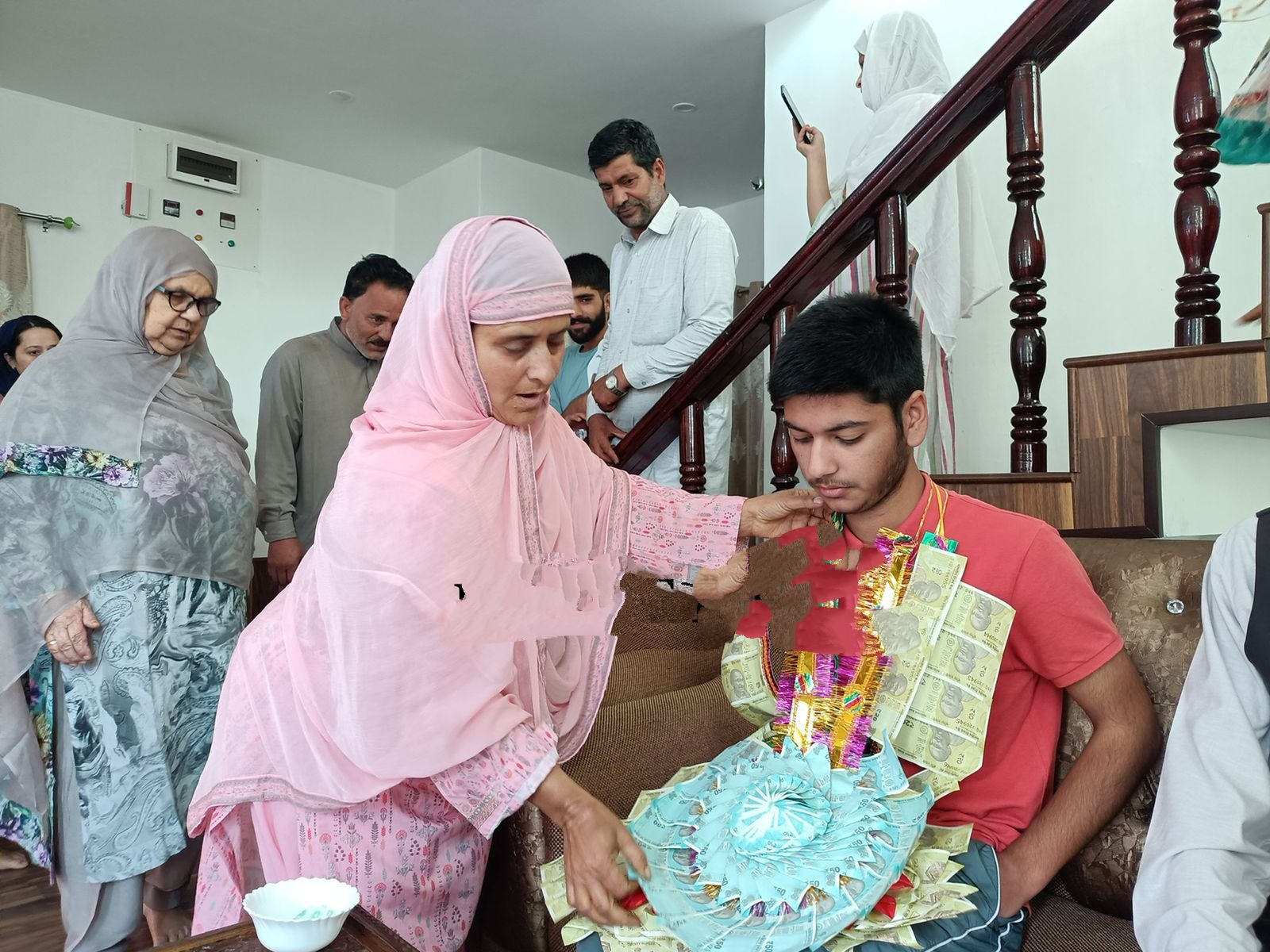
“Becoming a doctor was not my choice; I was compelled into this field by my parents,” discloses Sofiya. Influenced by her cousin’s success in securing a spot in a local medical college, her parents insisted she follow suit, despite her fervent desire to delve into English literature. The dream of a literary world was shattered when her parents dictated her education in Delhi.
Arriving in the capital in 2023, Sofiya grappled with panic attacks and severe bouts of depression. “The degree, the college, the people around me, the environment – none of it was my choice,” she lamented. “It all went against my will and preferences, and it took a toll on my well-being.”
Adapting to her new environment proved challenging, compounded by the pressure to meet her parents’ expectations. Struggling to articulate her emotions, Sofiya developed panic attacks. “As I kept my thoughts to myself and withdrew into silence, my inner turmoil intensified, resulting in panic attacks, mostly occurring in the confines of my hostel bathroom,” she explained.
Sofiya’s challenges extended to her relationships with roommates, who, unable to cope with her emotional struggles, opted to change rooms, leaving her isolated.
Asserting that parents should respect their children’s choices, Sofiya emphasised, “Even when I attempted to communicate my feelings to my parents, they consistently dismissed and ignored me. Now, I find myself in a situation where I lack enthusiasm for anything. At times, I contemplate running away to a distant place.”
Sofiya’s plight is not unique among those grappling with such challenges.
A Needed Homecoming
Amid entrenched family traditions, a growing cohort challenges age-old norms, advocating for autonomy in shaping their destinies. Saima, a 26-year-old from Srinagar, initially pursued a medical career but faced setbacks, leading her to study in Bangladesh.
After almost three years, she made the difficult decision to return home, leaving her MBBS studies unfinished. Saima’s choice was a result of a prolonged struggle with mental and emotional exhaustion, revealing the toll it took on her well-being, including panic attacks and health issues. Her story represents a subtle revolution against the scripted narratives handed down through generations, marking a growing dissent beneath the veneer of tradition.
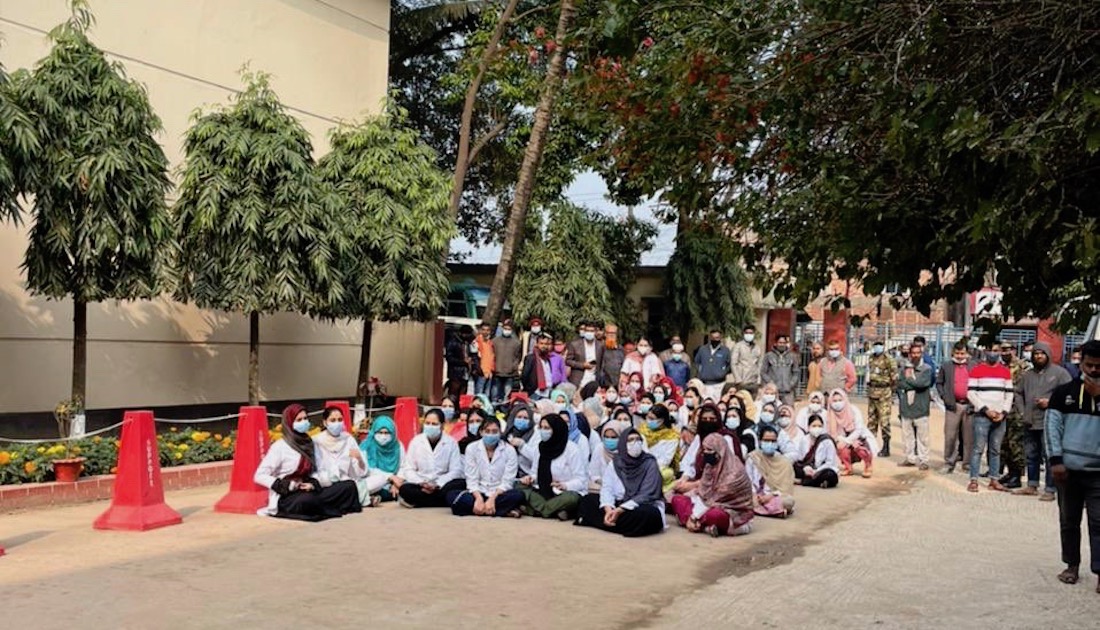
“My mental state deteriorated to the point where I would skip classes and isolate myself in my hostel room,” Saima said while recalling that period. “I felt disconnected from people, even distancing myself from my family.” Saima’s suffering extended beyond mental strain, encompassing emotional and physical health complications. “There were days when I felt my heart sinking, and I even doubted waking up the next day.”
In the depths of her struggles, Saima grappled with suicidal thoughts, self-harm tendencies, and a torrent of negative emotions. Reflecting on the reasons for her misery, she acknowledged the immense pressure associated with the demanding MBBS programme. Besides, she felt homesick and mistreated in the unfamiliar environment of Bangladesh, lacking the exposure she needed.
After determining that returning home was her only viable option, Saima faced taunts, comments, and bullying from her extended family, compounding her challenges. “My family had invested significantly in my education, and my inability to continue created additional issues,” she shared.
Rebuilding her life entailed months of rigorous efforts, medical consultations, and professional counselling. Saima successfully regained normalcy by enrolling in a Master’s programme at a reputable university in Kashmir. Despite comments about her age from younger peers, she remains resilient; appreciating that she is no longer confined to a foreign country with unfamiliar faces. Saima embraces the positive aspects of her current degree, recognising its greater allure compared to the one she initially pursued, which required leaving her family and home behind.
Matrimonial Manoeuvres
In navigating familial expectations, parents strategically plan their children’s academic paths driven by societal norms and the pursuit of advantageous alliances. The focus typically revolves around lucrative fields like engineering or medicine, with the goal extending beyond professional success to establish favourable matrimonial connections with families offering desirable proposals.
Furqana, a 27-year-old caught in this societal web, was pressured into pursuing an engineering degree at a foreign university after falling short in the local entrance test in Kashmir. However, engineering was never her passion.
“I always wanted to study Urdu, but my father insisted on engineering due to its perceived better prospects and the belief that engineers often find suitable matches in higher social strata,” she reflected.
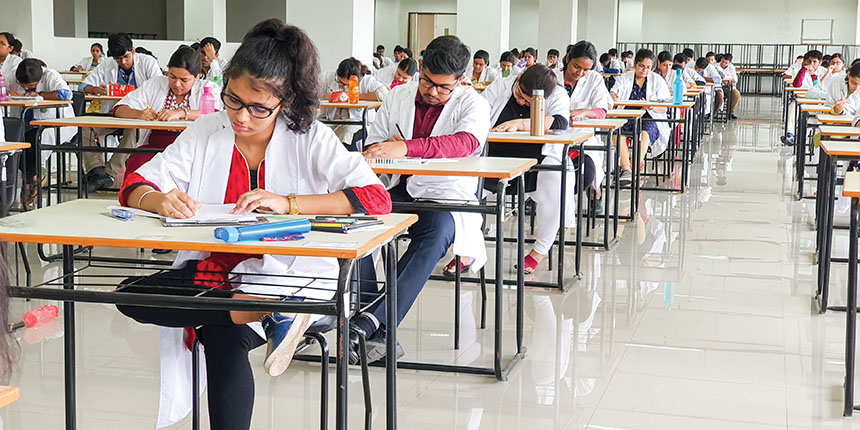
Enduring a four-year engineering degree in a foreign land where she felt disconnected from both people and culture, Furqana struggled to establish a social life. “My father’s words haunted me: ‘Become an engineer, a professional, and you’ll attract great proposals,'” she recalled. Alone in her dorm, she grappled with the incomprehensible coursework, often breaking into tears.
The consequence was a sea of backlogs in nearly every semester, a stark contrast to her once-brilliant academic record. Now a teacher, Furqana looked back on how her passion for Urdu literature, particularly Faiz’s poems, became her refuge during those challenging years. “I was in love with Urdu; it was my only escape,” she confessed.
Nightmares and academic setbacks transformed Furqana from an extroverted, cheerful individual into an introverted and timid soul. “Those failures led to self-esteem issues, and I became very dull,” she admitted. Attempts to discuss her struggles with her parents during holidays in Kashmir proved futile. “My father would dismissively say, ‘Just tolerate these four years, and everything will be fun afterwards,'” she recalled.
Fighting anxiety, Furqana faced a seemingly do-or-die situation. Despite obtaining her degree, job hunting proved fruitless. “Ironically, despite having an engineering degree, marriage discussions are centred around a businessman, not an engineer as my family envisioned,” she remarked sarcastically.
While the narrative might appear to disproportionately affect female students, Ruhaan’s testimony attests that the issue extends beyond gender boundaries.
Young Minds in Limbo
In the quest for advantageous alliances, parents often find themselves entangled in a web of predetermined deals, shaping their children’s destinies based on societal expectations. The outcome is a generation burdened by parental decisions that extend beyond individual aspirations.
Ruhaan, a 27-year-old from North Kashmir, is currently pursuing a medical degree offshore. For Ruhaan, this opportunity promised a chance to “shake things up, immerse himself in a different culture, and confront a myriad of diverse medical cases.”
Yet, societal pressures back home play out like a real-life chess game, as families meticulously plan entire lives, often overlooking true passions, he explained.
“Being in this entirely new academic universe far from home is challenging—balancing studies, adapting to a new culture, and overcoming homesickness,” Ruhaan said.
Psychologically, Ruhaan likened the experience to “navigating a roller coaster blindfolded. There are days when I question every life choice, wondering if I should have just stuck to my roots.” However, the love for medicine and support from friends keep him on the ride, a mix of self-doubt and pumped-up determination.
Emphasising that he is not alone in this struggle, Ruhaan highlighted that many friends and classmates grapple with similar challenges, “dealing with pressure, battling homesickness, you name it.”
The pressure to adhere to predetermined deals creates tension within families, forcing children to choose between personal passions and predefined paths. The once-innocent dreams of these youngsters are overshadowed by the strategic chessboard of familial alliances, turning careers into pawns in the game of societal expectations.
To cope, Ruhaan and friends formed a makeshift support group. They share stories and remind each other that “we are all stuck in this crazy roller coaster together. It is like having your little survival squad, and believe me, it makes a world of difference.”
Anxiety’s Stranglehold
This phenomenon not only stifles youth’s creative potential but also perpetuates a cycle of conformity that permeates personal lives. The tacit understanding that careers in medicine or engineering are not merely professional choices but strategic moves for future alliances adds complexity to the challenging journey of self-discovery.
Ali, an aspiring NEET examination candidate from Srinagar, grapples with tension as his family’s expectations collide with his aspirations. Raised in a family of doctors, he faces pressure to follow their path and pursue a medical career. Yet, Ali’s true passions led him toward literature and creative writing. “The burden of conforming to my family’s expectations weighs heavily on me as I navigate the conflict between filial duty and my dreams,” he confided.

Ali not only wrestles with NEET examination preparations but also with the decision of whether to conform to the medical field to satisfy his family or boldly embrace his ambitions.
The Kashmiri landscape reflects the dichotomy between tradition and modernity, embodying the internal turmoil Ali grapples with. The region’s enduring respect for the medical profession intersects with evolving societal perspectives on individual freedom and career choices. Amidst breathtaking valleys and ancient customs, Ali endeavours to reconcile his family’s aspirations with his fervent desire for self-determination. The NEET examination becomes more than an academic test; it becomes a pivotal moment in Ali’s journey toward self-discovery amidst cultural expectations.
In another alarming case, Ayesha, a 21-year-old medical student, shares stories of children forced to study against their wishes. “My friend is doing MBBS against her wishes, and being a single child, she feels the pressure to fulfil every family dream,” says Ayesha. Initially attempting to comply due to parental investment, her friend eventually stopped, engaging in detrimental behaviours, and distancing herself from her parents, blaming them for the imposed choices.
Navigating Emotional Currents
These career narratives encapsulate a generation’s pursuit of autonomy, self-discovery, and genuine happiness beyond predetermined alliances and societal expectations.
Dr Yasir Rather, a Professor in the Department of Psychiatry at GMC Srinagar in Jammu and Kashmir, sheds light on a prevalent phenomenon in the contemporary academic landscape. “Within our clinic, students studying abroad, particularly those pursuing medical courses, frequently grapple with mental health issues,” he observes. Notably, many of these students are from Jammu and Kashmir.
According to Dr Rather, a spectrum of mental health challenges plague these aspiring medical professionals, including homesickness, anxiety, depression, and a profound sense of isolation. “Factors contributing to these challenges span cultural adjustments, language barriers, academic pressures, social hurdles, and the conspicuous absence of familiar support systems. The amalgamation of rigorous medical coursework and adapting to a novel environment can significantly exacerbate these concerns.”
Despite these challenges, Dr Rather offers hope. “Navigating these tumultuous waters, seeking support from counselling services, and building a robust social network can serve as a lifeline, significantly aiding individuals in coping with the formidable challenges that accompany their academic pursuits.”
In the fabric of careers, these stories not only depict struggles but also highlight the resilience and solutions that emerge in the quest for personal and professional fulfilment.
Post-Graduation
Kashmiri medical students confront persistent challenges during their overseas studies and encounter intensified difficulties upon returning home, particularly post-graduation.
Dr Asrar Ahmed (name changed), a practising doctor from Kashmir, emphasised, “Upon acquiring a degree, the challenges of prolonged separation from home, exorbitant tuition fees in foreign universities, surmounting language barriers, and adapting to a new culture inevitably diminish. Nevertheless, the primary issue arises upon our return to Kashmir.”
He noted that even after successfully passing the Foreign Medical Graduates Examination, a licensing examination conducted by the National Board of Examinations in India, students who completed their MBBS in Kashmir face disdain from counterparts who question their capability and often label them as “Bangladeshi Doctors who know nothing.”
Amidst the shadows of tradition and societal expectations, a new narrative is emerging — one that encourages individuality, honours varied skills and acknowledges the deep importance of artistic expression for both personal fulfilment and societal advancement. A renaissance is gradually unfolding in Kashmir as the youth dares to dream beyond the confines set by tradition. It is a narrative about overcoming adversity and breaking free.
Educational Exodus
Amidst the prevalent mental health challenges faced by students, a less-explored aspect of the narrative unfolds.
Many students, unable to find the subjects of their choice within Kashmir, venture outside Kashmir for their education. Shereen, a 28-year-old from Budgam district, chose Turkey to pursue her passion for fashion design.
Seven years ago, Shereen embarked on this foreign journey driven by a desire to live without regrets. “I had always been intrigued by clothes, their design, and everything else,” she said. “When I seriously started looking for a degree or an institute here, I was disappointed. So, my father told me to look for foreign universities.” Turkey, with its comprehensive offerings, became her destination of choice. “Turkey had everything I wanted to learn, and I don’t regret that choice. I have cousins opting for foreign universities as well, as the education of their choice is not available here.”
This educational exodus finds its roots in the limitations back home: scarce employment options, a faltering administration, postponed examinations, outdated teaching practices, a dearth of student-friendly policies, and an unparalleled political climate.
Official records from the Jammu and Kashmir Higher Education Departments reveal 208 private and 142 government degree-granting institutions within the erstwhile state. However, a significant number of students opt to leave due to the absence of their desired disciplines. Beyond the state’s borders, colleges and universities offer a broader spectrum of programmes, including specialised fields not yet available in Jammu and Kashmir.
Aerospace engineering, biomedical engineering, robotics and automation, renewable energy systems, artificial intelligence and machine learning, cinema studies, sports management, and marketing are among the subjects drawing students away from the valley in pursuit of a more tailored and diverse education.















